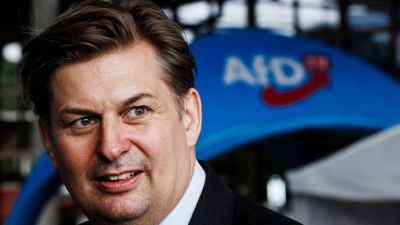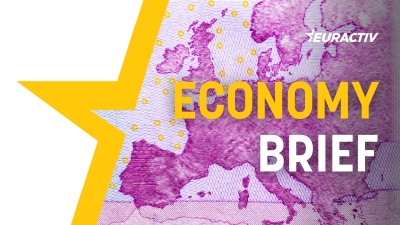EU defence commissioner proposal gains traction

The next European Commission should include a dedicated defence portfolio, Commission President Ursula von der Leyen said on Saturday (17 February) – and interest in the idea seems to be growing among European stakeholders.
Speaking at the Munich Security Conference, von der Leyen said it would be “reasonable” to create the post, should she secure a second term at the helm of the EU institution after June’s European elections. Von der Leyne is widely expected to announce her candidacy on Monday.
“If I would be the president of the next European Commission, I would have a commissioner for defence,” she told the Munich audience.
Her comments come as the bloc is scrambling to ramp up its industrial and defence capacity after Russia’s aggression against Ukraine increased both security risks and Kyiv’s need for more defence equipment.
The European Commission created a dedicated defence and space directorate — DG DEFIS — in 2019 and it is under Internal Market Commissioner Thierry Breton.
Breton, a close ally of French President Emmanuel Macron, has overseen the increasingly pressing issue related to the production of ammunition and Europe’s striving for its own space assets.
Scope unclear
However, the scope of any such post remains unclear, especially regarding how far beyond industry alone the responsibilities would encroach into EU member states’ national competence.
Under the EU treaties, the bloc’s foreign and security rests with the High Representative / Vice-President of the European Commission, a post now held by Josep Borrell, who is also the head of the European Defence Agency.
With that, the defence agenda is spread between Borrell and Breton, both with broad portfolios.
Von der Leyen’s centre-right European People’s Party (EPP) has recently come out in support of creating a defence post in the next Commission as part of a wider reshuffle of the foreign policy and defence portfolio.
Will member states catch on?
The call is not new or exclusive to the centre-right. Other European policymakers, like those in the Netherlands, have called for the new position, as did the European Defence Agency (EDA) chief Jiří Šedivý, who is said to have his own eyes on the job.
Italy’s Foreign Minister Antonio Tajani was the latest among high-ranking European officials to come out in favour, saying on Saturday Rome would support the idea.
“It is a proposal that I absolutely support,” Tajani told reporters in Munich. “We need to be real actors in foreign policy.”
EU diplomats say that beyond the feasibility of a stronger split of portfolios, another decisive factor for the idea’s success is who would get a first go at the newly created post.
Von der Leyen said in Munich that which nationality would get the post was an “open” question, but added that it is important that a candidate from Central and Eastern Europe receives a good portfolio.
“This is a good portfolio,” she said in reference to the defence post she was pitching.
A strong contender for the EU’s next top diplomat job is Estonia’s Prime Minister Kaja Kallas (Renew Europe), who has been vocal about the need for the EU to pool resources to accelerate ammunition production and deliveries to Ukraine.
But mind NATO
Asked about von der Leyen’s proposal, NATO Secretary-General Jens Stoltenberg said EU-NATO cooperation has reached “unprecedented levels” under her term.
“I welcome EU efforts on defence, especially when it comes to strengthening the defence-industrial base or de-fragmentation of the [European] defence industry and defence investments,” Stoltenberg said.
“What is not good, is, of course, duplication (…) NATO should remain the cornerstone of European security,” he added.
Read more with Euractiv




